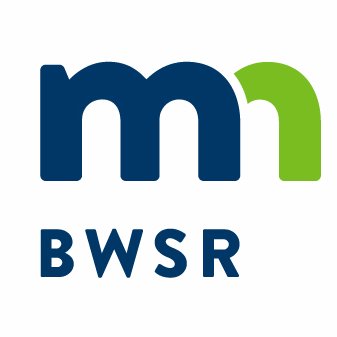FOR IMMEDIATE RELEASE
Contact: Mary Juhl; 612-358-5733
St. Paul, Minn. – The Minnesota Board of Water and Soil Resources (BWSR) approved $11.6 million in Clean Water Fund grants today to improve water quality in streams, lakes and groundwater across the state. Most of the grant funding is allocated for voluntary conservation projects throughout Minnesota, including funding for projects that focus on improving and protecting drinking water.
“Local governments are ready to work with private landowners across Minnesota to implement projects that will make meaningful progress toward improving water quality,” said BWSR Executive Director John Jaschke. “These grants support our valuable water resources by keeping our lakes, rivers and streams healthy.”
An example of expected outcomes includes the Pelican Lake Watershed District restoring function to the partially drained Rice Lake wetland. The project will reduce the largest phosphorous tributary loading source to downstream Detroit Lake, a high value recreational lake.
Another example is a soil health initiative in the city of Goodhue’s 2,500-acre municipal water supply to reduce nitrate contamination. A suite of soil health practices will be promoted and installed on agricultural lands in the drinking water supply management area to help reduce nitrogen leaching through the groundwater system.
The $11.6 million will fund 34 grants. Learn more about the grant recipients:
- Projects and Practices (19 grants)
- Drinking Water Projects and Practices (8 grants)
- Multipurpose Drainage Management (4 grants)
- Soil Health (3 grants)
About the Minnesota Clean Water Fund
Minnesota voters approved the Clean Water, Land and Legacy Amendment in 2008 to protect, enhance, and restore wetlands, prairies, forests, and fish, game, and wildlife habitat; to preserve arts and cultural heritage; to support parks and trails; and to protect, enhance, and restore lakes, rivers, streams, and groundwater. The Clean Water Fund receives 33 percent of the sales tax revenue generated by the Legacy Amendment. More information about the Clean Water Fund is available here.

